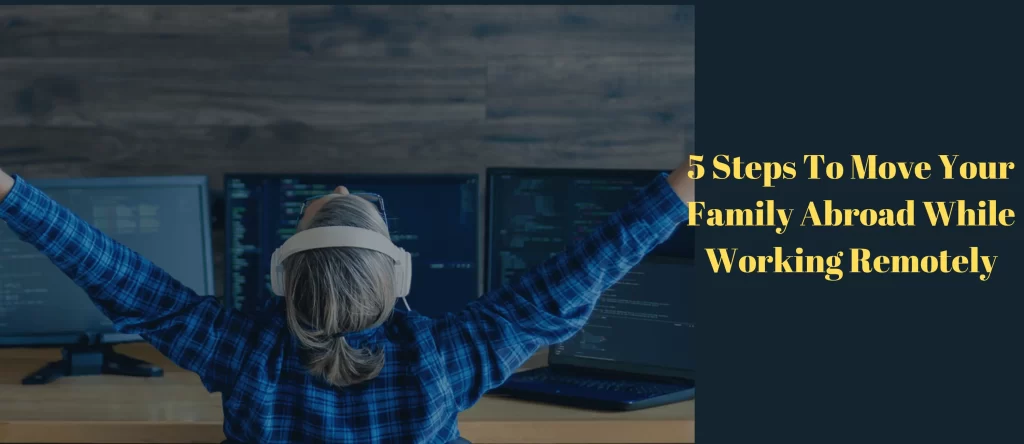
5 Steps To Move Your Family Abroad While Working Remotely
Are you tired of the same routine and scenery? Do you dream of living in a different country, immersing yourself in a new culture, and providing your family with a unique and enriching experience?
5 Steps To Move Your Family Abroad While Working Remotely, with the rise of remote work opportunities, moving abroad has become a viable option for many families. In this blog post, we will discuss a few means to help you successfully move your family abroad while working remotely. These steps will not only ensure a smooth transition but also allow you to create unforgettable memories with your loved ones in a new and exciting environment.
Research and Choose Your Ideal Destination
Start by identifying what’s important for your family: climate, cost of living, safety, and education opportunities are key factors. Use online resources and forums to gather insights from expats. Consider if the destination’s time zone aligns well with your remote work needs.

Research visa requirements and any restrictions for foreign workers. Shortlist a few countries and then dive deeper into the specifics of each, such as the availability of international schools and healthcare services. Visiting before making a final decision can provide invaluable firsthand experience of the local culture, lifestyle, and amenities.
Assess Your Remote Work Arrangement
Evaluate your current employment situation to ensure it supports long-term remote work abroad. Discuss your plans with your employer, focusing on how you can maintain productivity and meet work expectations across time zones.
It may also be necessary to review and possibly renegotiate your contract to include remote work stipulations specific to your new location. Consider the infrastructure required for your work, such as reliable internet access and a suitable workspace. Lastly, assess the legal implications, such as tax obligations in your home country and the new country, to avoid any unforeseen complications.
Plan Your Finances and Healthcare
Carefully budget for your move and ongoing expenses, taking into account the cost of living in your new country and potential fluctuations in currency exchange rates. Open a bank account in your destination country and explore international banking options to ensure easy access to funds.
Investigate health insurance options for expats to secure comprehensive coverage for your family. Understand the local healthcare system and identify nearby medical facilities. Planning your finances and healthcare meticulously will provide peace of mind and allow you to focus on enjoying your new life abroad.
Prepare for the Cultural Transition
Embrace the upcoming cultural transition by learning about your new country’s customs, language, and etiquette. Engaging with local communities online can offer insights and build connections before you arrive. Consider enrolling in language courses as a family or utilizing apps that facilitate language learning, which can be a fun and interactive way to prepare.
Additionally, understand and respect the cultural norms and differences to ease the adaptation process. This preparation will not only ease your integration into the new society but also enrich your family’s overseas experience by fostering a deeper connection with the local community.
Logistics and Moving Day Planning
When it comes to the final preparations, start by creating a detailed moving checklist to keep track of tasks. Book your flights and arrange for international movers with a reputable company experienced in handling overseas relocations. Notify relevant parties of your move, including schools, banks, and utility providers.

ensuring everyone knows their role. Lastly, plan for your arrival, considering temporary accommodation while you settle in and explore your new community.
Organize important documents, such as passports, visas, and work contracts, in an easily accessible folder. Prepare your family for the move by discussing what to expect on moving day, ensuring everyone knows their role. Lastly, plan for your arrival, considering temporary accommodation while you settle in and explore your new community.







